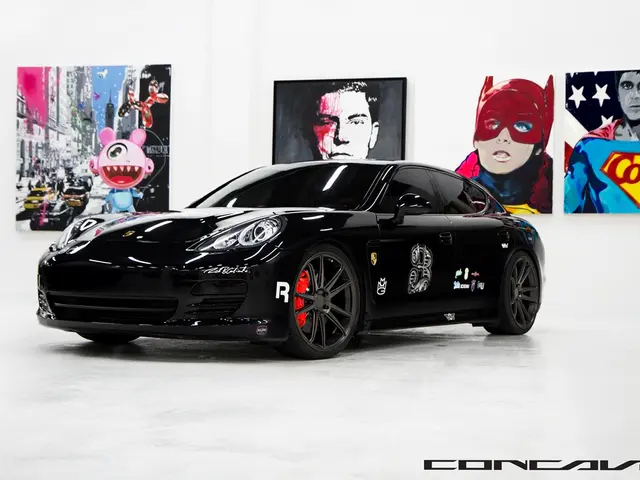Leapmotor, supported by Stellantis, is emulating BYD's strategy - extending their battery pack production to serve other automobile manufacturers.
Leapmotor, the Chinese electric vehicle (EV) manufacturer backed by Stellantis, is making waves in the automotive industry by venturing into the supply of battery packs to other commercial new energy vehicle (NEV) manufacturers. This move marks a significant step for Leapmotor, as it expands its operations beyond just manufacturing vehicles and emulates the successful model of its contemporary, BYD.
The battery packs are designed and assembled in-house by Leapmotor's subsidiary, Lingxiao Energy, which specialises in battery technology research and development. The battery cells used in these packs are primarily sourced from CATL and other battery manufacturers. This strategic partnership allows CATL to cost-effectively increase its market share in the commercial vehicle sector without having to create fully customised battery solutions for each client.
Leapmotor has already secured orders from more than five commercial vehicle customers and is actively seeking to expand its customer base. One of the companies reportedly in advanced negotiations with Leapmotor is Xeazon Motor (also known as Seazon Motor). This new phase for Leapmotor's components segment complements its core vehicle business and helps improve profitability amid fast sales growth.
In the first half of 2024, Leapmotor delivered 221,700 vehicles, marking a 156% year-on-year increase. In July alone, the company exceeded 50,000 unit deliveries for the first time. These impressive figures suggest a strong position for Leapmotor in the growing EV market.
Leapmotor's CEO, Zhu Jiangming, announced the company's plan to expand its self-development capabilities beyond the "three electric" systems and intelligent features to include all high-value components where in-house development is feasible. This broader strategy aims to compete in the automotive components market.
The commercial vehicle sector offers fewer competitive barriers and greater growth potential compared to the passenger vehicle market. According to the China Passenger Car Association (CPCA), commercial vehicles remain at under 20% electrification, suggesting significant growth opportunities. In the first half of 2024, commercial vehicle battery installations increased 126.2% year-on-year, reaching 51.4GWh.
This collaboration between Leapmotor and CATL signals a deeper alliance between the two companies, supporting their growth in the growing commercial EV segment. As Leapmotor continues to expand into the battery pack supply business, it is poised to make a significant impact in the commercial vehicle market.
The collaboration between Leapmotor and CATL is a strategic move to enhance their growth in the commercial electric vehicle (EV) segment, as Leapmotor expands its operations beyond vehicle manufacturing into the supply of battery packs. This alliance allows CATL to cost-effectively increase its market share in the commercial vehicle sector.
Leapmotor's foray into the components market complements its core vehicle business, aiming to compete in the automotive components market and improve profitability amid fast sales growth. The commercial vehicle sector, with under 20% electrification, offers significant growth opportunities, as indicated by the 126.2% year-on-year increase in commercial vehicle battery installations in the first half of 2024.
As Leapmotor continues to develop self-sufficient capabilities in high-value components, it is poised to make a significant impact in the evolving technology landscape, not just in the automotive industry but potentially in other sectors such as finance and transportation where technology plays a crucial role.







